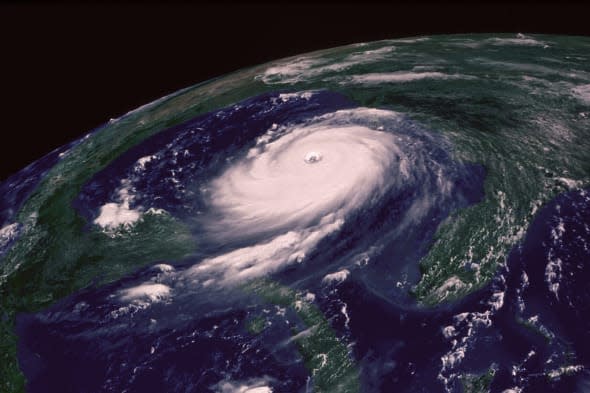Hurricanes with female names are more deadly

Hurricanes with pretty female names are the most deadly, research has shown.
With the hurricane season approaching, scientists warned travellers and others to beware of storms with names such as Dolly, Fay or Hanna.
They are significantly more likely to kill you than hurricanes with men's names - because they are perceived as less threatening. Words and photo: PA.
Researchers who analysed more than six decades of data on hurricane deaths in the US discovered a striking pattern.
For highly damaging storms, the more feminine-sounding a hurricane's name was, the more people it killed.
The link was thought to be due to members of the public taking fewer precautions against storms whose names sound less threatening.
Lead scientist Kiju Jung, from the University of Illinois in the US, said: "The problem is that a hurricane's name has nothing to do with its severity.
"Names are assigned arbitrarily, based on a predetermined list of alternating male and female names. If people in the path of a severe storm are judging the risk based on the storm's name, then this is potentially very dangerous."
The findings, published in the journal Proceedings of the National Academy of Sciences, suggest that changing a storm's name from "Charley" to "Eloise" could nearly triple its death toll.
Co-author Professor Sharon Shavitt, also from the University of Illinois, said: "In judging the intensity of a storm, people appear to be applying their beliefs about how men and women behave.
"This makes a female-named hurricane, especially one with a very feminine name such as Belle or Cindy, seem gentler and less violent."
In a follow-up series of experiments, the scientists questioned volunteers to see how the gender of names affected their judgment of hurricanes.
When people were asked to imagine being in the path of hurricane Alexandra, Christina or Victoria, the storm was rated as less risky and intense than if it was named Alexander, Christopher or Victor.
"People imagining a 'female' hurricane were not as willing to seek shelter," said Prof Shavitt. "The stereotypes that underlie these judgments are subtle and not necessarily hostile toward women - they may involve viewing women as warmer and less aggressive than men."
University colleague Professor Madhu Viswanathan added: "Such gender biases are pervasive and implicit. We found that people were affected by the gender of hurricane names regardless of whether they explicitly endorsed the idea that women and men have different traits. This appears to be a widespread phenomenon."
Hurricanes kill more than 200 people in the US each year, and severe storms can result in thousands of casualties.
A system of alternating male and female names for hurricanes was adopted in the late 1970s.
Previously, they were only given female names. Political correctness led to the practice being changed to avoid accusations of sexism.
This first of this year's storms are scheduled to be named Arthur, Bertha, Cristobal and Dolly.
Commenting on the research, US behavioural science expert Professor Hazel Rose Markus, from Stanford University, said: "This is a tremendously important finding - proof positive that our culturally grounded associations steer our steps."
Related stories
Scientists tagging sharks to help predict hurricanes (video)
UK weather: June to kick off summer with two weeks of rain
Storm chaser risks life for incredible extreme weather photographs





